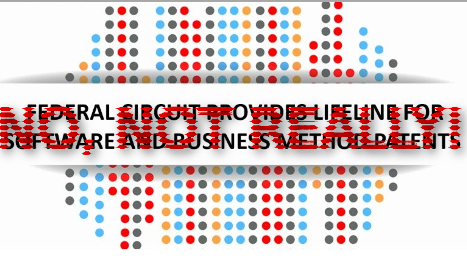

"The Berkheimer Memorandum," wrote Marks & Clerk's Julian Asquith and Tobias Eriksson in their headline just a little while ago, is "Good news for software patents in the US" (perpetuating the old hype, such as "Berkheimer Effect" and ‘pulling a Berkheimer’). The USPTO offered a consultation after Berkheimer and there are still months to go. Quoting Marks & Clerk:
The Berkheimer memorandum, issued by the USPTO on 19 April 2018, is good news for applicants of US software-related patents.
In summary, an examiner at the USPTO is now obliged to factually prove that any “additional features” of a claim are well-understood, routine, and conventional in order to support an "abstract idea" rejection. Hence, if a claim is novel and inventive, it should now be easier to show that it is also patent eligible (i.e. that it relates to patentable subject-matter).
It is widely acknowledged that the patenting of software-related inventions became more difficult in the US following the decision in 2014 of the US Supreme Court in decision known as "Alice" (Alice Corp. v. CLS Bank International).
"That in no way changes Alice, only burden of proof associated with it. In that regard, not much will happen."On May 1st Robert Curylo wrote about "Loopholes In The USPTO's Berkheimer Memo". To quote: "Rejections of patent claims under 35 U.S.C. €§ 101 are often criticized when examiners take an “I know when I see it” approach rather than applying any objective standards for assessing patent eligibility. However, in an April 19, 2018, memorandum, the U.S. Patent and Trademark Office imposes new limitations on rejecting patent claims as ineligible for being directed to abstract ideas without significantly more."
But there are still loopholes there, albeit the paywall puts them out of view. Several days ago in IAM's sponsored ads/'analyses' (Baker Donelson in this case) the lawyers were 'pulling a Berkheimer' (even months later). As they put it:
The US Patent and Trademark Office (USPTO) has recently provided additional guidance to its examiners on the issue of subject-matter eligibility, which could make it easier for applicants to overcome rejections under 35 USC Section 101. The memorandum, issued on April 19 2018, addresses the limited question of whether an additional claim element (or combination of additional claim elements) represents well-understood, routine and conventional activity.